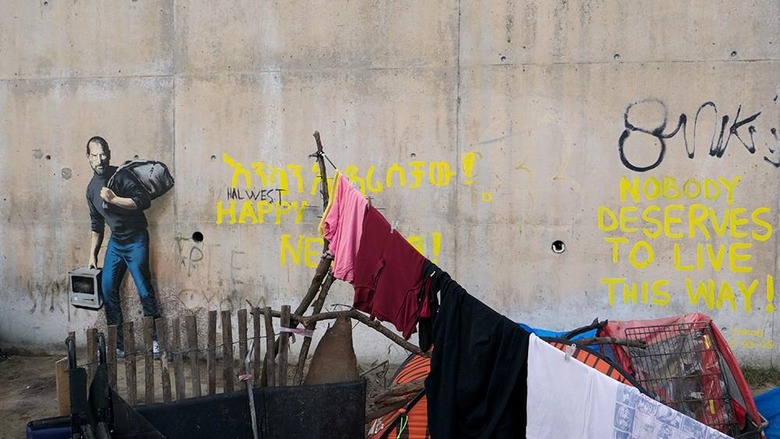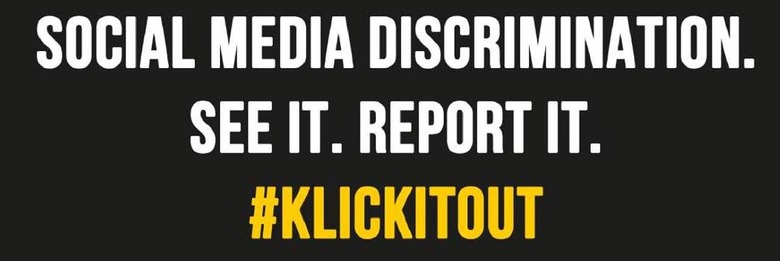Social Networks Should Not Need EU Hate Speech Rules (But They Do)
Internet mega-brands Facebook, Twitter, Microsoft, and YouTube agree on a "code of conduct" with the European Commission to remove "hate speech" from their networks in less than 24 hours. This update does not necessarily hold these companies accountable the same way a hard-and-fast written law would in any one individual country. Instead, this would be more of an agreement – a hand-shake – between the companies to combat hate speech. According to this code of conduct, they'll be "developing counter-narratives promoting non-discrimination, tolerance and respect, including through awareness-raising activities."Reuters reports that this measure has been put in place after months of EU government efforts to crack down on hate speech amid recent terror attacks and the refugee crisis. SEE: Why Banksy just painted Steve Jobs.
"The recent terror attacks have reminded us of the urgent need to address illegal online hate speech." said EU Justice Commissioner Vera Jourova via Rueters, "Social media is unfortunately one of the tools that terrorist groups use to radicalize young people."

But why can't these social networks hold themselves accountable?
Is it a question of cost?
Does it cost too much cash to hire enough moderators to take care of hateful comments as they appear?
It seems to me that this is not unlike the release of the 1906 novel "The Jungle" by Upton Sinclair. A book that led to the Meat Inspection Act of 1906.
Meat packing companies in the United States couldn't be bothered to ensure the safety of their workers and sanitary conditions for the food they were preparing. Not at first. Not until all their competitors did it, too.
Each of these brands have some rules in place to combat hate speech without the EU's code of conduct – that's true.
To combat hate speech, these companies support the European Commission and EU Member States in their efforts to block said negativity before it spreads.
That's the key.

Not blocking hate speech instantly, but stopping it from spreading... is, if you're familiar with the internet, maybe not a notion that seems all that feasible.
They aim "to respond to the challenge of ensuring that online platforms do not offer opportunities for illegal online hate speech to spread virally."
"The spread of illegal hate speech online not only negatively affects the groups or individuals that it targets," says the code of conduct, "it also negatively impacts those who speak out for freedom, tolerance and non-discrimination in our open societies and has a chilling effect on the democratic discourse on online platforms."
Companies will review "the majority" of reported cases of illegal hate speech "in less than 24 hours," and will then "remove or disable access to such content, if necessary."
This reporting and removal will be misconstrued as an attack on our First Amendment rights here in the United States – but of course that does not make one stitch of sense for more than one reason:
1. This agreement was made in the EU, not the USA.
2. Rules here are not substantially different from codes of conduct each of these brands already have, on their own. The one big difference is the speed at which reporting and removal will happen.
3. Freedom of Speech does not mean "I can say whatever I want without consequences", it means you can say whatever you want and your government can't stop you from saying it. Facebook, Twitter, Microsoft, and YouTube, on the other hand, can do whatever they want with your words, whenever they deem it necessary.
It saddens me that an agreement had to me made to combat hate speech in the first place. These networks should have been "combatting racism, xenophobia, and all forms of intolerance" by whatever means necessary already.
But if whatever means necessary includes an agreement like this, then so be it!

On a final positive note, I'm glad to see that at the end of the code of conduct (available to us this week in PDF form), the authors of said code have included room for further assessment.
"The IT Companies and the European Commission agree to assess the public commitments in this code of conduct on a regular basis, including their impact," says the code of conduct. "They also agree to further discuss how to promote transparency and encourage counter and alternative narratives.
"To this end, regular meetings will take place and a preliminary assessment will be reported to the High Level Group on Combating Racism, Xenophobia and all forms of intolerance by the end of 2016."
